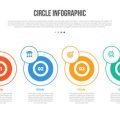Market Overview: Evolving Demand for Medical-Grade Skincare in the UK
The UK’s skincare market is undergoing a pivotal transformation, driven by a surge in demand for medical-grade solutions that promise both efficacy and scientific backing. British consumers are increasingly prioritising results-oriented products, moving beyond conventional cosmetics towards formulations developed and endorsed by dermatologists and clinical experts. This shift is particularly pronounced among millennials and Generation Z, who demonstrate heightened awareness of ingredient transparency, clinical validation, and personalised treatment options.
Key demographic shifts are fuelling this trend, with an ageing population seeking advanced anti-ageing solutions and younger cohorts focused on preventative care and skin health optimisation. The rise of social media and digital influencers has also accelerated consumer education around active ingredients such as retinoids, peptides, and antioxidants—ingredients more commonly found in medical-grade ranges. Furthermore, the COVID-19 pandemic has reinforced the importance of self-care and wellbeing, propelling consumers to invest in high-performance skincare that delivers measurable results.
Market drivers such as increased accessibility to professional-grade products through clinics, authorised retailers, and online platforms have democratised access to these treatments. Regulatory clarity and robust product safety standards in the UK further bolster consumer confidence in medical-grade skincare. Collectively, these factors are shaping a dynamic landscape where science-led innovation and consumer empowerment intersect, setting the stage for continued growth and evolution within Britain’s medical-grade skincare sector.
2. Cutting-edge Ingredients and Formulation Innovations
The landscape of medical-grade skincare in the UK is being rapidly transformed by advances in active ingredients and formulation technologies. Driven by a discerning consumer base and stringent local regulations, brands are investing heavily in research and development to deliver products that meet the unique skin health needs of UK residents.
Breakthrough Active Ingredients
Recent years have witnessed the introduction of novel actives such as bioengineered peptides, encapsulated retinoids, and stabilised vitamin C derivatives. These ingredients are specifically designed to maximise efficacy while minimising irritation—an essential consideration for sensitive British complexions. Moreover, natural-origin actives, like marine extracts sourced from the North Atlantic, are gaining traction for their potent antioxidant and anti-inflammatory properties.
Formulation Technology: Delivering Results with Precision
The sophistication of delivery systems has also advanced considerably. Liposomal encapsulation, nanoemulsion technology, and time-release vehicles ensure that active compounds penetrate deeper layers of the skin for sustained benefits. This precision not only boosts product performance but also aligns with the UKs regulatory emphasis on safety and traceability.
Focus on Evidence-Based Efficacy
In response to a more scientifically literate public, brands are increasingly required to substantiate their claims with robust clinical data. The table below highlights key formulation innovations alongside their demonstrated clinical outcomes:
| Innovation | Key Ingredient(s) | Clinical Outcome | UK Regulatory Consideration |
|---|---|---|---|
| Liposomal Delivery Systems | Vitamin C, Niacinamide | Enhanced penetration & reduced irritation | Complies with cosmetic safety regulations |
| Nano-Encapsulated Retinoids | Retinol, Retinaldehyde | Sustained release & improved tolerability | Restricted concentration as per UK/EU law |
| Bioengineered Peptides | Signal peptides, Growth factors | Boosted collagen synthesis & skin repair | Subject to ingredient-specific approval |
| Marine-Derived Antioxidants | Algae extract, Seaweed polyphenols | Reduced inflammation & UV protection | Sustainable sourcing required by UK standards |
This evidence-based approach is becoming a defining characteristic of medical-grade skincare in the UK. Consumers expect transparency and proof of results before committing to premium products.
The ongoing convergence of cutting-edge science and rigorous regulatory oversight ensures that the future of medical-grade skincare in the UK will continue to set high standards for both innovation and safety.

3. The Rise of Personalisation and Digital Skin Health
The British skincare landscape is undergoing a radical transformation, largely fuelled by the convergence of digital diagnostics, artificial intelligence, and advanced at-home analysis tools. These technologies are redefining what medical-grade skincare means for UK consumers, shifting the focus from generic solutions to hyper-personalised regimes grounded in science.
AI-Driven Personalisation: From Clinic to Consumer
Artificial intelligence has become a cornerstone in tailoring skincare, with leading UK clinics and brands deploying sophisticated algorithms to interpret skin data and recommend targeted treatments. AI-powered apps now assess skin tone, texture, hydration, and even micro-level concerns through smartphone cameras, bringing professional-grade insights directly to British homes. This democratisation of expertise means personalised routines are no longer exclusive to Harley Street consultations but accessible to anyone seeking evidence-based skincare.
Digital Diagnostics: Precision Meets Convenience
Digital diagnostic tools are reshaping the consultation process. Devices using multispectral imaging or biometric sensors provide in-depth skin health reports within minutes, allowing UK practitioners to create bespoke treatment plans with clinical accuracy. For consumers, these innovations translate to fewer trial-and-error purchases and enhanced trust in product efficacy, aligning with the British demand for transparency and measurable results.
At-Home Analysis: Empowering the British Skincare Enthusiast
The proliferation of smart mirrors and handheld skin scanners in the UK market empowers individuals to monitor changes in real time and adjust their routines accordingly. These at-home tools offer a level of engagement previously reserved for dermatological settings, fostering a culture of proactive skin health management. As British consumers become increasingly tech-savvy, the fusion of digital convenience and medical-grade precision is setting new standards for efficacy, safety, and user experience in skincare.
Impact of Local Regulations and NHS Partnerships
The regulatory landscape for medical-grade skincare in the UK is experiencing significant transformation, directly influencing product development, market entry, and consumer access. The Medicines and Healthcare products Regulatory Agency (MHRA) has been tightening requirements for clinical evidence, labelling accuracy, and post-market surveillance, ensuring only rigorously tested products reach British consumers. This evolving environment mandates that brands must not only comply with stringent safety standards but also demonstrate clear efficacy through robust clinical trials.
Key Regulatory Requirements in the UK
| Requirement | Description | Implication for Brands |
|---|---|---|
| MHRA Approval | Medical-grade skincare products must be registered and approved by the MHRA before entering the market. | Increased time and resources required for compliance and documentation. |
| Clinical Evidence | Products must provide transparent clinical data supporting their claims of efficacy and safety. | Necessitates investment in localised clinical trials and partnerships with UK research bodies. |
| Post-Market Surveillance | Ongoing monitoring for adverse effects or quality issues is compulsory. | Brands need to establish robust reporting mechanisms and customer feedback loops. |
| Labelling Standards | Clear, accurate, and comprehensive information must be provided on packaging. | Potential need for re-designing labels to meet local consumer expectations and legal requirements. |
NHS Collaborations: Catalysing Access and Innovation
The National Health Service (NHS) plays an increasingly pivotal role in shaping the future of medical-grade skincare across the UK. Collaborative partnerships between private skincare brands, academic institutions, and NHS Trusts are accelerating the adoption of evidence-based solutions in clinical settings. These alliances enable new products to undergo real-world evaluations within NHS dermatology departments, providing valuable data on patient outcomes while reinforcing credibility among healthcare professionals.
Emerging Models of Partnership with the NHS
- Pilot Programmes: Medical-grade skincare companies can participate in NHS pilot schemes, gaining early feedback from practitioners and patients alike.
- Research Collaborations: Joint studies with NHS hospitals facilitate data collection relevant to British skin types and environmental factors.
- Educational Initiatives: Co-branded training sessions ensure that clinicians are well-versed in the latest innovations and application protocols.
The Growing Influence of UK Medical Professionals
Bespoke collaborations with British dermatologists and pharmacists are driving product refinement tailored to local needs. By embedding clinical expertise into product formulation and validation processes, brands are better equipped to address conditions prevalent in the UK population—such as rosacea, eczema, and photoageing. This integration of frontline medical insight ensures that innovations are not only scientifically advanced but also culturally relevant for British consumers.
5. Sustainability and Ethical Considerations in Skincare Innovation
The medical-grade skincare sector in the UK is experiencing a pronounced shift towards sustainability and ethical responsibility, driven by both consumer demand and regulatory expectations. British brands are increasingly aware that next-generation formulations must not only deliver clinical efficacy but also adhere to rigorous standards of environmental stewardship. This transformation is evident in several key areas: ingredient sourcing, manufacturing processes, and packaging innovations.
Firstly, sustainable ingredient sourcing has become a cornerstone for reputable UK skincare companies. Brands are investing in traceable supply chains, prioritising organic and renewable raw materials, and partnering with suppliers who uphold fair labour practices. Marine-derived actives, plant-based peptides, and bioengineered botanicals are gaining traction as alternatives to traditional ingredients, reflecting a commitment to biodiversity preservation without compromising on performance.
Secondly, ethical considerations now permeate the entire product lifecycle. Many British companies have adopted cruelty-free testing protocols, aligning with EU and UK regulations that ban animal testing for cosmetic products. Furthermore, local manufacturers are embracing energy-efficient production methods and reducing water usage through closed-loop systems—a move that resonates with environmentally conscious consumers and supports national carbon reduction targets.
Packaging innovation stands out as another area where the UK market is setting benchmarks. Medical-grade skincare brands are moving away from single-use plastics, opting instead for recyclable, biodegradable, or refillable packaging solutions. Some are leveraging cutting-edge materials such as mycelium-based containers or ocean-recycled plastics to further reduce their ecological footprint. Clear labelling regarding recyclability and disposal instructions is also enhancing transparency for consumers keen on making sustainable choices.
The convergence of these initiatives positions British medical-grade skincare at the forefront of global eco-consciousness. By integrating sustainability and ethics into product development, UK brands are not only safeguarding the environment but also building trust with discerning clients who expect high standards of responsibility alongside tangible dermatological benefits.
6. Consumer Education and Professional Influence
In the evolving landscape of medical-grade skincare in the UK, consumer education stands as a pivotal factor influencing purchasing decisions and product efficacy. The role of healthcare professionals—particularly dermatologists, pharmacists, and aesthetic practitioners—cannot be understated in shaping public perception and trust. Their expert guidance bridges the gap between complex scientific formulations and everyday skincare routines, ensuring that consumers are not only aware of cutting-edge innovations but are also able to make informed choices suited to their individual needs.
The Expertise of Dermatologists
Dermatologists remain at the forefront of this sector, acting as both trusted advisors and gatekeepers of credible information. Their clinical authority helps demystify ingredients, debunk myths prevalent in mainstream beauty culture, and recommend evidence-based regimens tailored for specific skin concerns. As the demand for personalised solutions intensifies, their ability to interpret medical research and translate it into practical advice is increasingly valued by UK consumers seeking authenticity in a saturated marketplace.
Pharmacists: The Bridge Between Science and Accessibility
Pharmacists also play a critical role in disseminating accurate information about medical-grade skincare. Positioned within community settings, they provide accessible consultations on product selection, contraindications, and safe usage. In the context of the NHS and private health sectors alike, pharmacists are instrumental in supporting patients with chronic dermatological conditions who require ongoing management with advanced topical therapies or cosmeceuticals. This collaborative approach enhances compliance and optimises outcomes.
Building Trust Through Multi-Disciplinary Collaboration
The future of medical-grade skincare in the UK will increasingly rely on collaboration among healthcare professionals to reinforce consumer confidence. Cross-disciplinary training initiatives, public awareness campaigns, and transparent communication strategies are becoming vital tools for building trust. By prioritising education over marketing hype, these experts empower individuals to discern high-quality products from pseudo-scientific claims—a trend that is likely to shape purchasing behaviours well into the next decade.
Ultimately, as innovation accelerates within the industry, it is the endorsement and involvement of qualified professionals that will underpin the responsible growth of medical-grade skincare in the UK, ensuring both safety and efficacy for all consumers.


